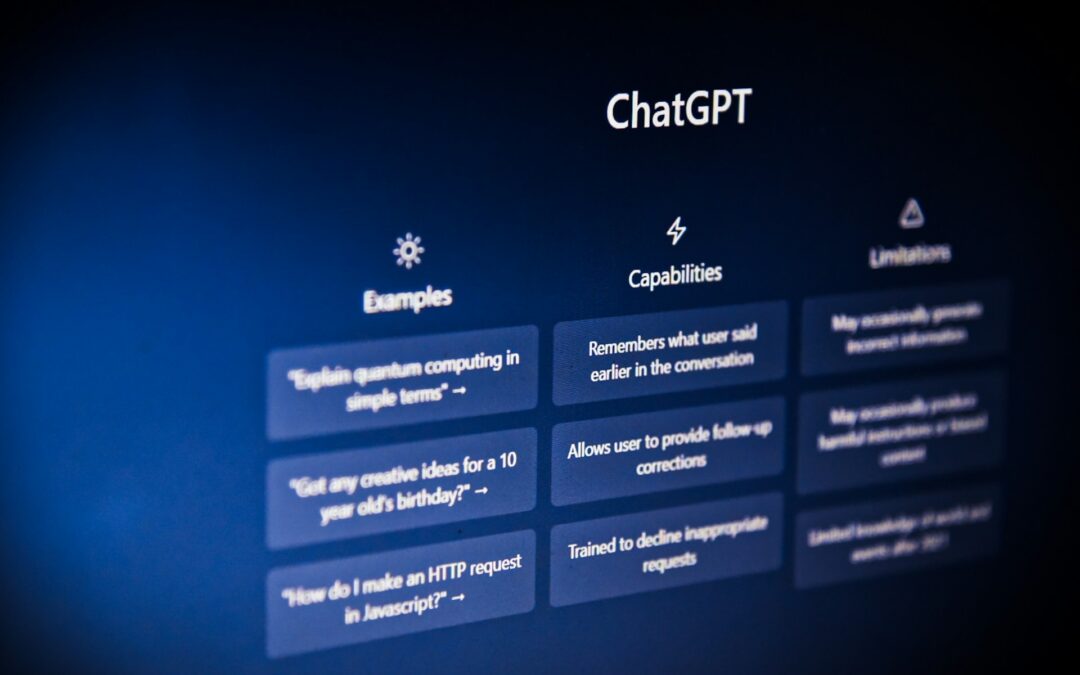Photo by Levart_Photographer on Unsplash
by Stu Hatton
Have you ever sought information or advice about drugs from a chatbot such as ChatGPT? Or is this something you’d consider doing? This article considers the pros and cons of AI-generated content about drugs; but the Bluelight team’s advice would be, where possible, to talk to pros (e.g. health professionals, harm reduction peer workers, drug researchers), and to steer clear of cons—for example, shoddy AI-generated books on mushroom foraging so full of misinformation that you’re more likely to have a trip to the emergency room than the kind of trip you might’ve been hoping for.
ChatGPT was in the news in December 2023 for providing inaccurate and/or incomplete information about pharmaceutical drugs. As a rule, however, it will avoid providing information about illegal activities, and won’t answer questions ‘that promote or endorse illegal drugs or substances’. Some users have found workarounds to get the chatbot to answer questions on these topics (for example, getting a fake recipe for meth), but what’s the point if the information it provides isn’t accurate?
Up until recently, a major limitation of chatbots had been the recency of the information they could draw upon. At the time of writing, for example, ChatGPT 3.5 is still operating on data up to January 2022. However, chatbots such as Perplexity, Microsoft’s Copilot (formerly known as Bing Chat), and Google’s Gemini (formerly known as Bard) now have access to the ‘live’ internet.
But what about chatbots specifically designed to provide drug info? Members of Bluelight’s Discord server may be aware that an AI called TripBot is available on the server. It allows users to access basic drug information, check drug interactions, calculate dosages, and keep a private record of doses taken. For further information, you can check out the ‘useful-commands’ channel of the Discord server.
And there’s PsyAI, a drug information bot accessible via Telegram, and in Bluelight’s own Telegram channel. PsyAI bills itself as an ‘AI-powered guide that answers questions about drugs in an unbiased, judgement-free way’, sourcing its information from the likes of PsychonautWiki and Effect Index. The PsyAI bot is particularly useful for finding information regarding dosage and effects, but can also handle all manner of drug-related questions.
The team at Mindheal have developed a harm reduction bot that was initially accessible via the Telegram messaging service, and is now live on the OpenAI platform. The Mindheal Bot is ‘dedicated to addressing queries related to harm reduction, addiction, and psychological issues’. Alex Gorovoy from mindheal says the bot ‘acts as an intermediary between a person and a specialist, providing a quick, relatively accurate, and up-to-date answer to questions.’ Gorovny argues that the bot ‘offers slightly more’ than, say, a search on Google or Wikipedia.
There’s also the Drugs and Me bot, a chatbot ‘specialised in health and drug use’ that draws information from sources such as DrugScience and PsychonautWiki. Like the Mindheal bot, it’s currently free and accessible 24/7.
If you’d prefer not to use a chatbot, or find they don’t provide the info you need, what are the alternatives? If you’re in trouble, or need immediate help, there are crisis hotlines such as the Fireside Project (US only), and tripsitting services such as TripSit. But for more general queries, there are websites like Erowid, wikis including PsychonautWiki, and, yes, web forums, Discord servers and subreddits such as those administered by Bluelight. And of course there are more traditional methods, such as books. Dominic Milton Trott’s The Drug User’s Bible is free to download via Bluelight, and the drug information sections of Alexander and Ann Shulgin’s PiHKAL and TiHKAL are freely available on Erowid. Alternatively, you could speak to a healthcare professional, or pose your question to a trusted, knowledgeable friend. Or if your query is technical or obscure, maybe you could reach out to a relevant expert in the field?
Being able to draw upon community knowledge and support is important, and, I believe, one of the strengths of Bluelight. Generally speaking, posing a question to a knowledgeable community will yield better results than a standard Google search. Since Google changed its algorithm in 2018, the visibility of Bluelight and similar harm reduction sites in search results has been severely compromised. There are other search engines, of course, some of which are ‘AI-powered’. So go ahead, do a search, or ask a chatbot, and if in doubt, throw the results to the Bluelight community and see if they agree. And if you get conflicting answers, it might be time to call on a recognised expert.
Unfortunately, not all health professionals are experts on drugs—especially, say, novel psychoactives such as the latest benzos, opioids or cathinones to arrive on the scene.
But a little bit of harm reduction common sense can go a long way. If you don’t know what substance you’re holding in your hands, then try to get hold of a reagent test or better still, use a drug-checking service if you’re lucky enough to have one accessible to you. If you’re unsure about dosing, then start low and go slow. If you’re worried about possible drug interactions, including with medications, maybe check out PsychCombo or PsychonautWiki. But if you can’t find info about a particular combination, it’s probably best to err on the side of caution. And if you do happen to take a novel or rare combination (whether inadvertently or otherwise), you could consider writing a trip report.
Below is a short list of helpful links for drug information and advice. If you can’t find what you’re looking for below, Bluelight’s resource list offers a more extensive selection of links.
Bluelight forums
Bluelight’s Discord server
Bluelight’s resource list
Bluelight’s subreddit
Bluelight’s Telegram channel
Effect Index
Erowid
Fireside Project (US only)
Mindheal Bot
PsyAI
PsychCombo
PsychonautWiki
TripSit.me
Editor’s note: PsyAI and Bluelight have recently entered into an agreement to work together to provide PsyAI to our community members across multiple platforms, to be rolled out over the next year.

Stu Hatton is a writer, editor, and educator. He is managing editor of the Bluelight website.
